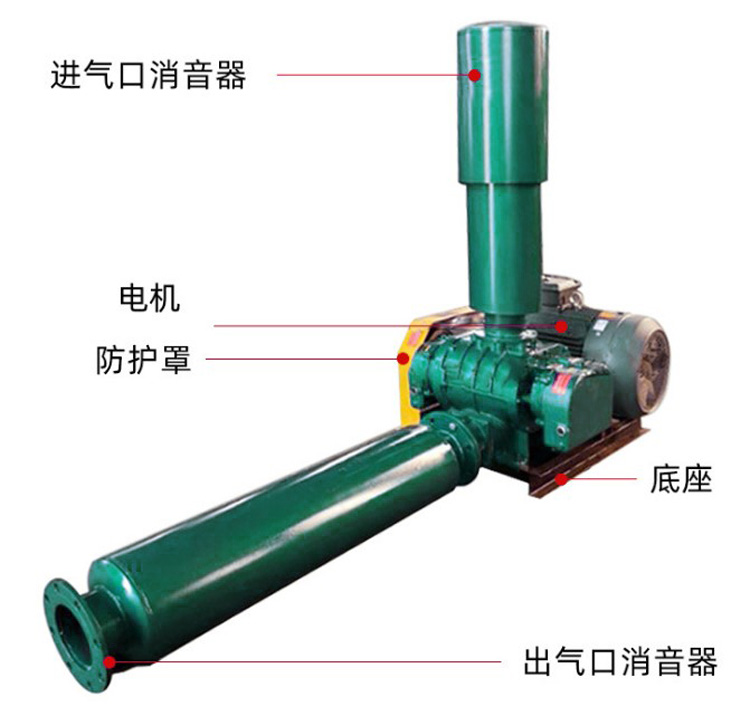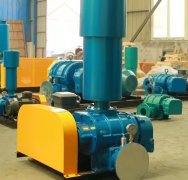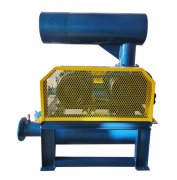Roots blower is a device used for conveying gases, which generates airflow through the movement of twin-screw rotors and has the characteristics of volume flow operation without pulsation, lubrication, and oil dust. It has a simple structure, reliable operation, low noise (but still relatively high compared to other types of fans), high efficiency, easy maintenance, and can work in a wide pressure range to meet the needs of different working conditions. In boiler systems, Roots blowers are mainly used for the following applications:
1、 Combustion air supply
In places such as coal-fired power plants, Roots blowers can provide sufficient air to ensure the full combustion of coal powder. This is achieved through the powerful exhaust capacity and stable airflow output of the Roots blower, which helps to improve combustion efficiency.
2、 Coal powder conveying
The Roots blower can transport coal powder from the storage area to the boiler combustion chamber by generating sufficient airflow pressure. During this process, the adaptability and forced air supply characteristics of Roots blowers played a key role.
3、 Flue gas desulfurization
In the flue gas desulfurization system, the Roots blower provides the gas flow required for the desulfurization process, promoting the conversion of sulfur dioxide. This helps to reduce the pollutants emitted by the boiler and meets the requirements.
4、 Cooling system
Roots blowers can also provide powerful airflow for cooling power generation equipment and other critical components. In boiler systems, this helps to maintain stable operation of equipment and extend its service life.
In addition to the main applications mentioned above, Roots blowers are also widely used in various fields such as sewage treatment, pharmaceuticals, chemicals, metallurgy, aquaculture, etc. due to their stable characteristics. For example, in sewage treatment plants, Roots blowers can be used for conveying air flotation sludge and providing aeration systems; In the pharmaceutical and chemical industries, Roots blowers can be used to provide conveying and drying systems, as well as in gas separation and purification processes.
However, Roots blowers also have some shortcomings, such as low insulation efficiency, easy gas leakage, and high noise. These issues need to be taken into consideration in practical applications and corresponding measures should be taken to improve and optimize them. For example, noise pollution can be reduced by using noise reduction devices such as mufflers and soundproof covers; At the same time, it is also necessary to regularly inspect and maintain various components of the fan to reduce additional noise and gas leaks caused by wear and tear.
In summary, Roots blowers have broad application prospects and significant value in boiler systems. With the continuous advancement and improvement of technology, we believe that Roots blowers will be more perfect and widely used in the future.



